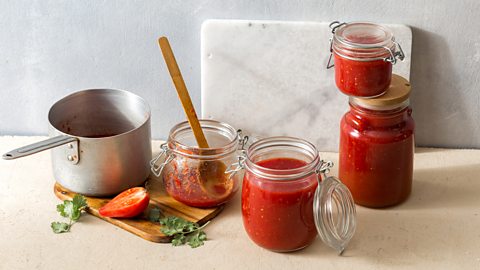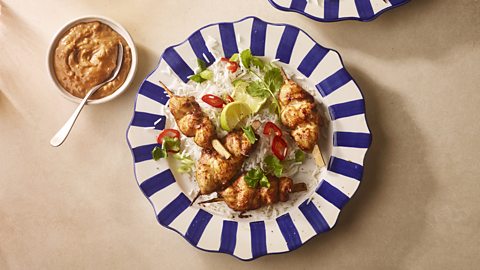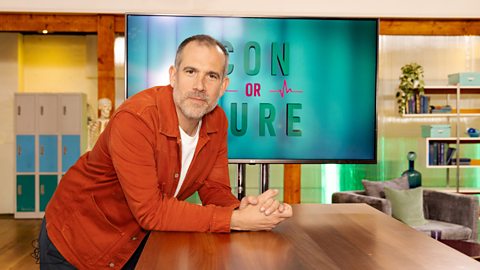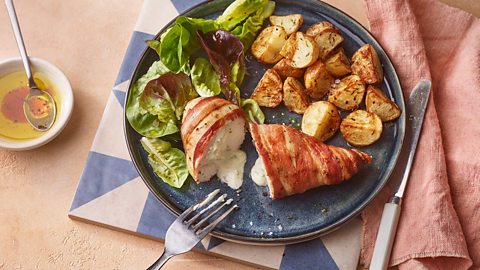How to learn to love cooking
By Sue Quinn
Surveys suggest 58% of Brits see themselves as fairly good or very good cooks. So what about the other 42%? The reality is cooking doesn’t appeal to everyone. If you dread the thought of cooking from scratch, we have some tips to help make it something you'll look forward to.
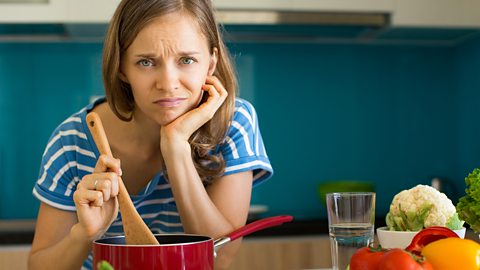
There are many reasons why, for some people, cooking is anything but pleasurable. Not everyone is a natural-born Nigella or Nigel. Some bad experiences in the kitchen can be dispiriting, leaving you with the feeling that, for all your efforts, you're stuck with a disappointing dinner.
You might be squeezed for time, feeling stressed or exhausted, living on a tight budget, or lacking kitchen space or equipment. Perhaps you live on your own and can’t get motivated to cook just for yourself. Perhaps you are cooking for family members who all have different tastes and finding something everyone will eat is a chore in itself.
Robin Van Creveld, aka the Community Chef, runs a community kitchen in Lewes, East Sussex, where he teaches locals of all abilities to cook. “You might not have grown up in a household where everyone helped and enjoyed sitting down together to eat. And we tend to follow what our parents did,” he says.
Home-cooking can be better for your health, save you money and, yes, it can actually be enjoyable, but only if you feel that the end result is worth the effort.
More benefit, less effort
Finding what motivates you is the first step. Are you hoping to save money or feel more healthy? Do you want to feed your family or yourself better?
Van Creveld suggests trying to focus on what you can gain from the process, rather than the obstacles that stand in your way, such as lack of time or ability. “Food can be an expression of love and nurturing people for we care for,” he says. Cooking for a family can be challenging, but also create new traditions and special moments - from baking Christmas cookies together or some family favourites like a simple bolognese sauce.
Then begin to keep a list of the simplest dishes you can make and ways to make your effort go further. Chef, author, and cookery teacher Charlotte Pike invests time by batch cooking. “I often make larger quantities than I need when cooking so that there are leftovers to eat in the coming days or to freeze,” she says. “My reward for cooking is another meal for another day.” This is particularly useful strategy if you’re cooking for one.
Related stories
Where to start
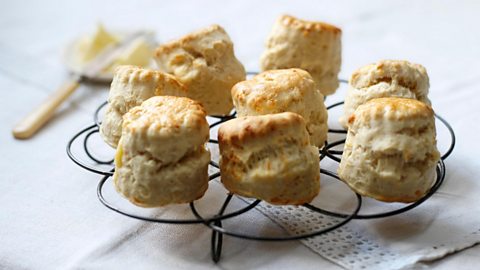
Approaching cooking like a culinary Couch to 5K is a way to build your confidence and enjoyment. “Do a little bit of cooking every day and look for small gains,” Van Creveld suggests. “I would start with breakfast and make porridge, pancakes or even just a fruit salad or smoothie.” Even knowing you can have a boiled egg or poached egg any time of the day is one more home-made meal you've achieved.
Take things slowly, Pike advises, and be selective. “It's a good idea to build useful skills, one step at a time,” she says. Many of Pike's students use short, online videos for how-to techniques. For example, if a dish requires a finely chopped onion, watch an expert do it online. “Seeing how things are done can be very useful,” she says.
Short-cut ingredients, like pre-chopped vegetables, pre-cooked ingredients in tins and pouches (such as beans, pulses, fruit and vegetables) and ready-made sauces, make cooking easier when time is short. But a bit of planning is still essential, Van Creveld says.
“I would say an absolute key thing for people who feel they hate cooking or that they can’t cook, is to put a little bit more planning into it,” he says. That means reading a recipe thoroughly before you start and making sure you have all the ingredients you need, including enough for leftovers.”
For example, roast twice or three times as many vegetables as you need for dinner, so there are plenty left to eat on other days in different ways. You could whizz them up in a blender with stock to make soup, or quickly re-heat them with a glaze of honey. “Cook once, eat twice, or even three times,” he says, before warning; “this doesn’t really happen without a bit of planning.”
Van Creveld always starts his cookery classes with soup followed by something baked, such as savoury scones. Pike suggests also trying a salad, and few one-pot meals to build your skills.
You don’t need the latest utensils and appliances to cook well. A sharp knife, a board, a frying pan, a couple of pots, a roasting tray, baking tray and a grater will see you through many recipes, and you can add from there.
Find inspiration
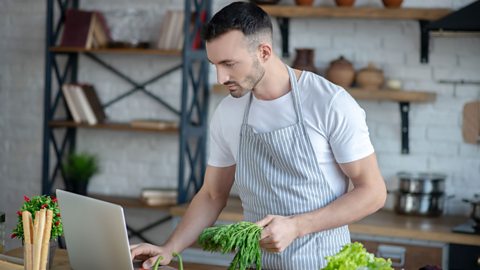
It might sound obvious, but a good place to start igniting your love of cooking is choosing simple and reliable recipes for meals you really love eating. “So often I see people getting frustrated or demotivated, as they’re attempting to make food that is overly complicated, or making things because they feel they should,” Pike says. “It can really take the joy out of it all.”
Choose a cookbook or blog by a chef or writer you admire (the library is great if you want to try before you buy). If you’re a beginner, student recipes are also good for achievable, budget-friendly, and speedy meals.
Alternatively, go to a reputable online source like the BBC Food website, and use highly-rated recipes that others have tried before or look for collections of easy recipes. But importantly, cook what you like to eat. “Find recipes that really make you salivate,” Van Creveld says.
If this is too much choice, start with the one-pot recipes as these are more easily achievable, says Pike. “I find oven-baking in one dish or tray especially convenient, as the oven does a lot of the work for you,” she says, adding this also reduces the washing up. “A slow cooker is also great in this respect if you have one.”
A simple roast chicken and vegetables can even look impressive if served straight from the tray at the table.
Many people find cooking inspiration on social media. TikTok and Instagram are immensely popular for this. The videos and posts are often short, and don’t contain a full recipe or method, so seek out ones with a written method and measurements.
Make it fun
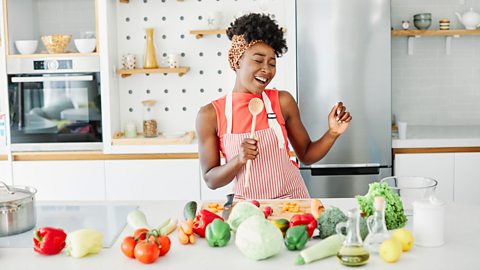
If cooking feels like a burden, it might be because you’re doing too much yourself, Van Creveld says. “A lot of people hate cooking because they shop, they prep, they cook and they clean, they do it all,” he says, adding children and other householders should be encouraged to get involved. “I think it’s really important to allocate and divvy up tasks,” he says.
Pike suggests playing music while cooking can make the process more enjoyable. “I usually find a good playlist very helpful to lighten the mood and help get me stuck into a task I do not relish.”
Originally published April 2022
